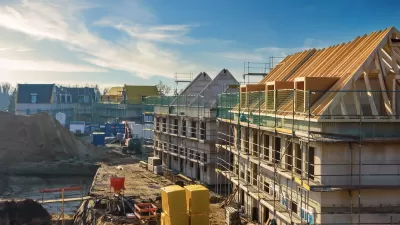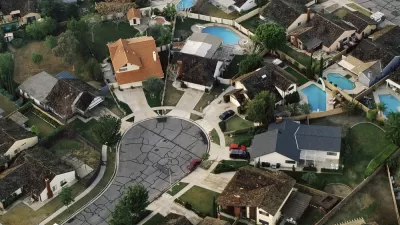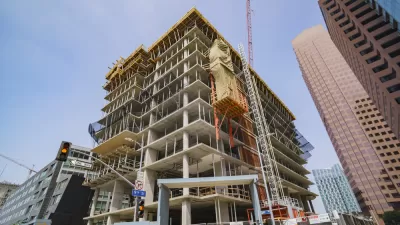A law requiring New Jersey towns to ensure 10 percent of new units are affordable now awaits a vote by the State Assembly.
Towns would also have the option of dedicating 20 percent of new development to residents earning up to 150 percent of the regional median income. Residential developers looking to avoid the quota could pay a penalty equal to 3.5 percent of development costs, which the town must then use towards future affordable housing projects. The law would also abolish the state Council on Affordable Housing.
Governor Chris Christie has vowed to veto the legislation if it passes, taking issue with another fee targeting commercial developers, writes Matt Friedman:
"While Christie supports abolishing the council, he opposes the bill's 2.5 percent fee on commercial development to help pay for affordable housing. The bill temporarily does away with the fee - which is currently in effect because a moratorium on it expired in July - but phases it back over the course of five years."
FULL STORY: N.J. Assembly committee advances bill abolishing Council on Affordable Housing

Americans May Be Stuck — But Why?
Americans are moving a lot less than they once did, and that is a problem. While Yoni Applebaum, in his highly-publicized article Stuck, gets the reasons badly wrong, it's still important to ask: why are we moving so much less than before?

Study: Maui’s Plan to Convert Vacation Rentals to Long-Term Housing Could Cause Nearly $1 Billion Economic Loss
The plan would reduce visitor accommodation by 25,% resulting in 1,900 jobs lost.

Using Old Oil and Gas Wells for Green Energy Storage
Penn State researchers have found that repurposing abandoned oil and gas wells for geothermal-assisted compressed-air energy storage can boost efficiency, reduce environmental risks, and support clean energy and job transitions.

San Diego Swaps Parking Lane for Kid-Friendly Mini Park
The block-long greenway will feature interactive play equipment and landscaping.

Tracking the Invisible: Methane Leaks From LA’s Neighborhood Oil Sites
Environmental advocates are using infrared technology to monitor and document methane leaks from neighborhood oil sites, filling regulatory gaps and pushing for stronger protections to safeguard community health and the climate.

Montana Bill Promotes Parking Reform
A bill before the Montana state senate would bar cities from requiring more than one parking spot per new housing unit.
Urban Design for Planners 1: Software Tools
This six-course series explores essential urban design concepts using open source software and equips planners with the tools they need to participate fully in the urban design process.
Planning for Universal Design
Learn the tools for implementing Universal Design in planning regulations.
Caltrans
Heyer Gruel & Associates PA
Institute for Housing and Urban Development Studies (IHS)
City of Grandview
Harvard GSD Executive Education
Salt Lake City
NYU Wagner Graduate School of Public Service
City of Cambridge, Maryland





























